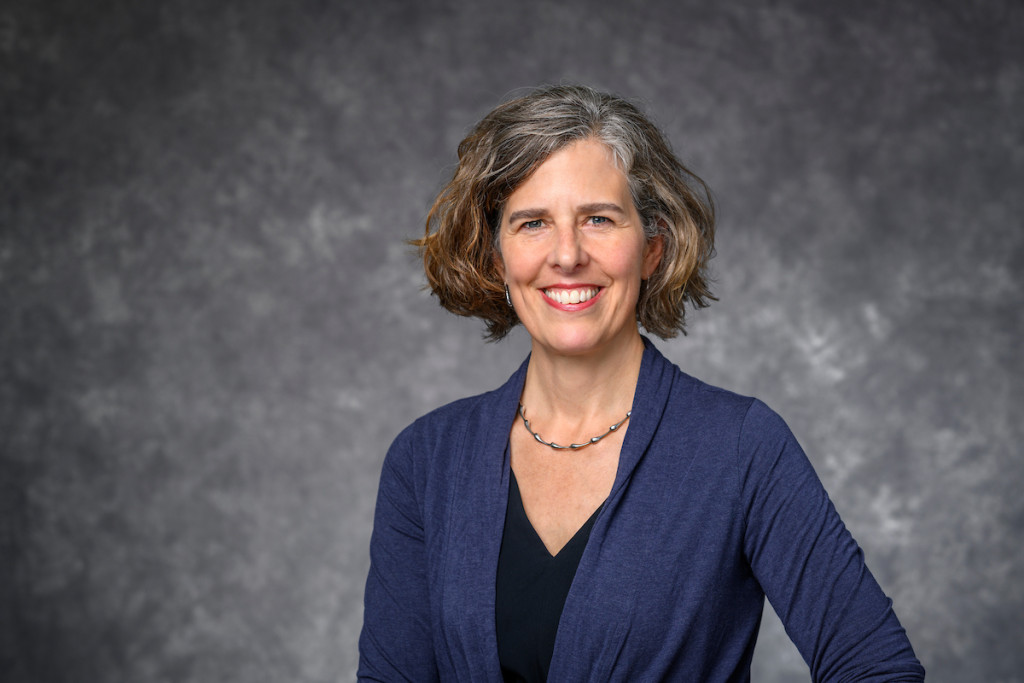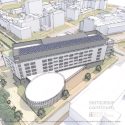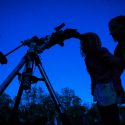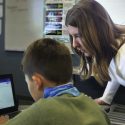Making an American economy that works for the people

UW–Madison Professor Kathy Cramer helps lead a commission looking to put the well-being of Americans at the center of economic discussions. Photo: Althea Dotzour
Does the American economy work for its people?
Kathy Cramer, professor of political science at the University of Wisconsin–Madison, would argue it doesn’t. She is one of the leaders of the American Academy of Arts and Sciences Commission on Reimagining Our Economy, which today [Nov. 9, 2023] released a report with 15 recommendations for “how to make an economy that works for the people who make it work.” It includes recommendations to increase economic security, bolster economic opportunity and improve Americans’ political voice.
Below, Cramer shares more about the commission’s work over the last two years to reimagine the way the economy runs and come up with tangible ways to rebuild it as a people-first model.
Q: What was the vision behind the commission’s work?
A: The American Academy of Arts and Sciences is an honorary society and a research organization that’s been in the United States for a great long time — John Adams was one of the founders. The academy identifies big problems in the country and in the world and pulls together teams of people from a variety of sectors to think hard, gather information and make policy recommendations about how we can achieve a better life.
The backstory on this commission is that there’s a prior commission on democracy, and their report was called “Our Common Purpose.” It’s probably not going to be a surprise to anyone, but they identified the economy as having a huge role in the health of our democracy. And so, they said, let’s create a separate commission focused on the economy. This commission, called Reimagining Our Economy, was tasked with figuring out what are the major problems in the economy that get in the way of most people — if not all people in the country — thriving. We’ve spent two years learning, gathering facts, listening to people around the country and gradually arriving at a set of 15 recommendations.
It’s a bipartisan commission of not just academics, not just economists, but also artists, authors, people in labor and people in faith communities, among other sectors. It’s an awesome cast of characters to work with.
Q: How did you get involved?
A: They invited me to be a part of the scoping process. I would imagine it’s because I work on public opinion and democracy, and I had been studying ruptures in public sentiment right here in Wisconsin — namely the rural versus urban divide. After the scoping process, they asked me to be one of three co-chairs. I am a Badger through and through. The Wisconsin Idea is central to who I am as a professional and as a person. I am a professor because I want to put knowledge to work to improve the common good. So, I leapt at the chance to do this work.
Q: How did the commission strive to keep the project cross-partisan?
A: If you’re going to propose solutions that are viable, they have to resonate with a broad range of people. So how did we do that? Partly, we did that through inviting a wide range of people to be a part of the commission, but also hopefully in the way we operated as a commission to try to make it clear that everybody’s voice mattered. Also, we put a lot of effort into listening to people beyond our commission. Hopefully, it was built into the process itself to arrive at solutions that a wide range of people can get behind. We also had the honor of meeting with Bryan Steil, a Republican who represents Wisconsin’s 1st Congressional District, and Jim Himes, a Democrat who represents Connecticut’s 4th. They were the ranking member and chair of a bipartisan Congressional committee at the time focused on issues very similar to ours.
Q: What do you think makes for a good recommendation?
A: We were looking for things that were bold, that could actually be put into action, that were bipartisan and that address the problems we had identified in the economy. The problems we identified were broad basic things. For example, there’s a general belief that if you work 40 hours a week, you ought to be able to support yourself, if not your family. And that’s just not the case for many, many people anymore. We wanted these recommendations to directly address the basic fundamental problems that are preventing a lot of people from thriving.
One overarching principle that helped us identify recommendations is that all too often the economy operates as if it’s operating for the sake of the economy. It’s operating for the sake of greed, as many of our listening session participants told us. It’s not operating for people. Ideally, an economy is created as a thing that allows people to create and exchange what they need in order to live and hopefully thrive. We are really far away from that ideal.
Q: How do you hope people react when they see the findings?
A: I hope people recognize that the economy doesn’t just happen, it takes the shape it does because of intentional decisions, whether by policymakers or people in different sectors. It was created by humans, and we humans can create a different economy. When people feel a sense of hopelessness or feel as if it’s beyond their control, it actually is not. We can decide as a country — if not more broadly than that — to actually have an economy that works better for people.
I also hope they recognize that things can be changed even in this divisive time, that people can come to an agreement about some pretty basic things but big, important things that can be done to create a healthier economy that’s more focused on our well-being. That’s what I hope elected officials and everyone else recognizes.
Q: What does a “people-first” economy look like to you?
A: It looks like an economy in which people can work 40 hours, and not break their bodies in the process, and have time with the people they love, and have time for hobbies — to have time to do the things they love. That they can on the job be engaged in work that’s meaningful, that feeds their soul, rather than chips away at it. That would be to me, a people-first economy.
Q: Why should people pay attention to the project?
A: The economy is a huge part of our lives. We arguably spend more time in our workplaces than we do with our families. And for a lot of people in the United States, the economy is not working great for them. This report is focused on how to make an economy that works for people and create a country and environment in which we really can be well, we can thrive as humans and have the things we need.
Tags: economy, outreach, political science



